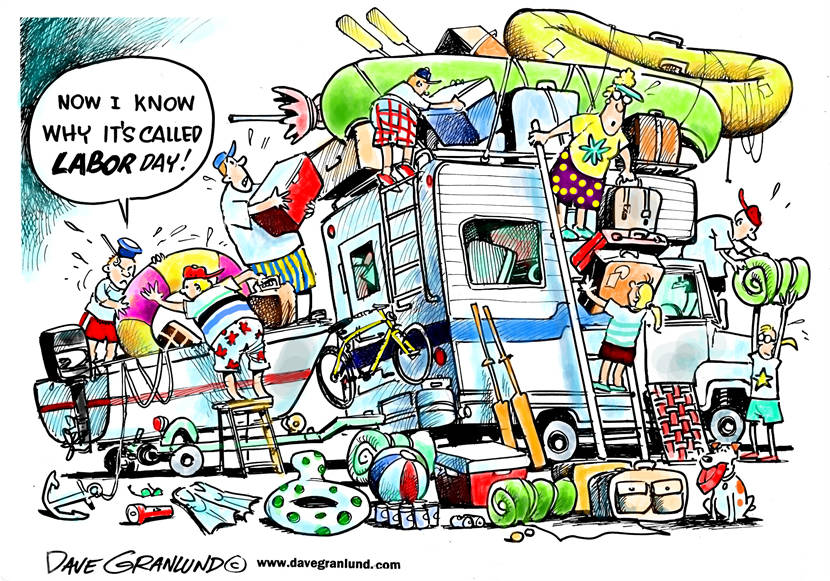It’s an old dream of mine, and I just may do it: Buy a travel trailer and live on the American road for weeks at a time.
Recreational vehicle living is a growing trend, particularly for younger people, who, post-COVID-19, prefer to work at home instead of commuting to their company’s office building. Thanks to technology, your “home office” can now be in an RV parked next to a rushing creek in the middle of nowhere.
I’ve been critical of the downsides of digital innovation, which has given us social media tools that cause many of us to embrace narrower viewpoints and become intolerant of anyone who disagrees with us.
But here’s the big upside: All anyone needs now to live on the road is an RV with a solar panel and a cell phone that can provide a WiFi signal. That will allow anyone anywhere to access his company’s computer network, manage his finances and life online, and relax in the evening by watching hundreds of channels of television through streaming services.
Better yet, technology is also enabling many of us to make our livings in unconventional ways. One family, reports CNBC, sold two houses, purchased an RV and is making a handsome living filing blog reports about its travels.
As a long-time provider of communications and cybersecurity services, I’ve been able to work remotely for years. So why not hit the road with my Labrador buddy, Thurber? I’m searching daily for a modest RV that would meet my basic needs, which pretty much amounts to a small table where I can sit and write.
Why not visit family and friends scattered all over the country? I can park in their driveway as long as I want or return to my house anytime I want. Why not take an extended trip to Alaska, a long-time dream, or to Nova Scotia, another place I’ve always wanted to explore?
At this moment, I’m really longing for a visit to the ocean. The sound of large waves splashing has always held a restorative power for me. Every time I visit the Atlantic Ocean, my blood pressure drops and a calm comes over me. The biggest upside to the growing RVing trend, though, will benefit our testy society.
RV-ing will help open minds and hearts by enabling people to have conversations with other people face-to-face around a campground bonfire, rather than swapping snarky insults while hiding behind the safety of a computer screen. Author Ken Stern, formerly president of National Public Radio, wrote a great road book in 2017 describing the year he spent outside of his politically “parochial” urban East Coast neighborhood. He set out to meet people across the American Heartland who he had considered wrong-headed on a variety of issues — until he sat down and actually talked with them.
Stern discovered that Americans of all backgrounds have a much more nuanced understanding of their country and the world — and that our country would benefit from re-embracing the art of conversation. I’m hankering to do just that. I dream of parking my truck and travel trailer right on the beach at Assateague Island, MD. It only costs 30 bucks a night.
I’ll wake early to make a pot of fresh coffee. I’ll sip it from a mug as I walk along the beach with my dog as the sun rises. As I think about making this my new reality, I can already feel my blood pressure dropping.
Tom Purcell is an author and humor columnist for the Pittsburgh Tribune-Review. Email him at Tom@TomPurcell.com.



